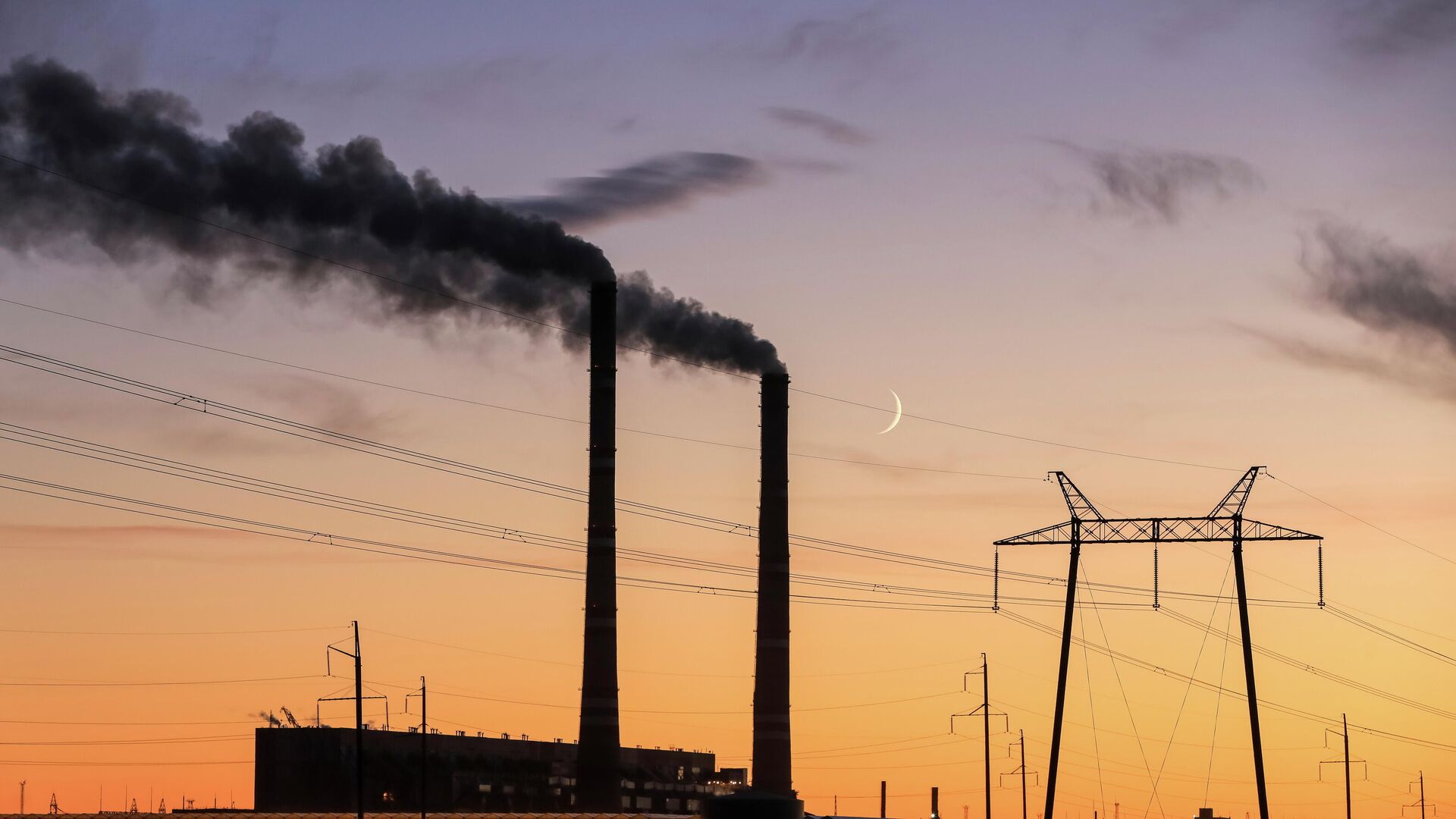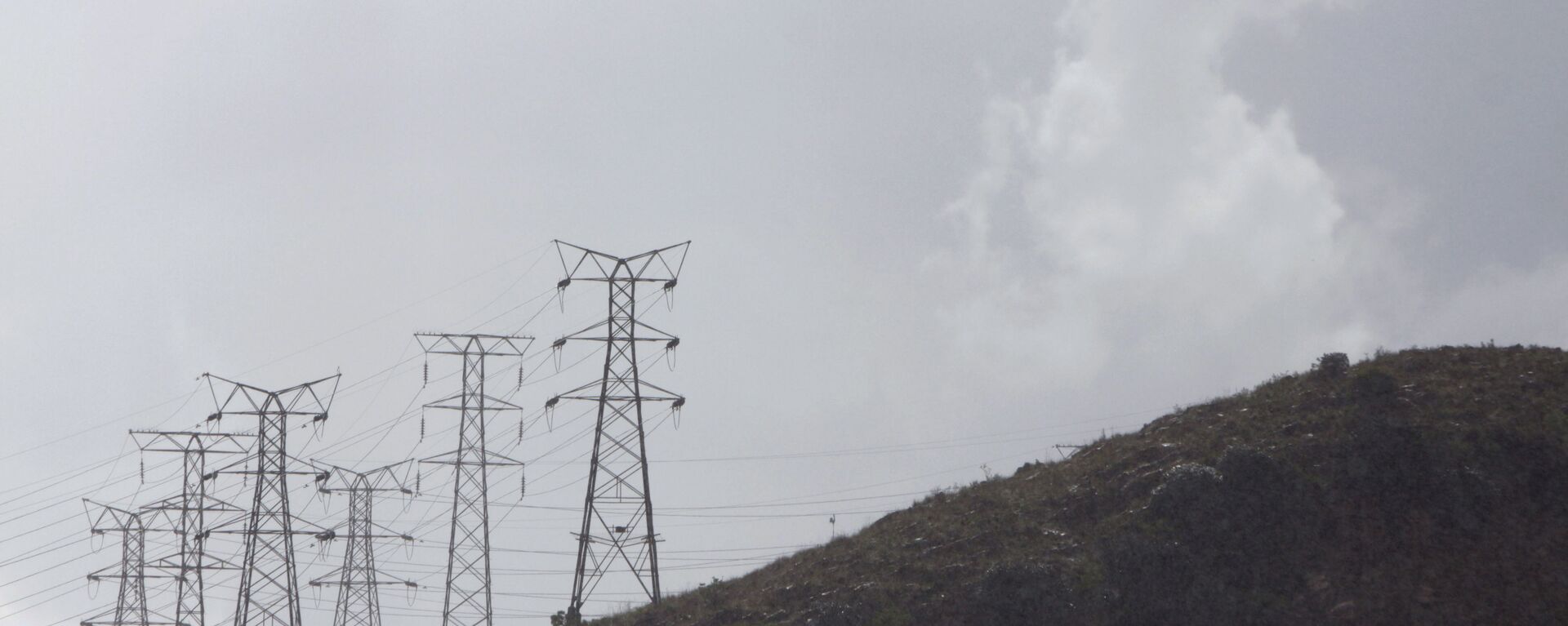https://sputnikglobe.com/20211111/south-african-miners-union-opposes-r130-billion-cop26-loan-to-end-coal-use-1090663384.html
South African Miners’ Union Opposes R130-Billion COP26 Loan to End Coal Use
South African Miners’ Union Opposes R130-Billion COP26 Loan to End Coal Use
Sputnik International
South Africans have experienced regular power cuts since President Cyril Ramaphosa ousted his predecessor Jacob Zuma in 2018 and cancelled plans for a new... 11.11.2021, Sputnik International
2021-11-11T21:44+0000
2021-11-11T21:44+0000
2022-11-10T12:53+0000
coal
cop26 climate summit
cop26
jacob zuma
cyril ramaphosa
south africa
https://cdn1.img.sputnikglobe.com/img/07e5/0b/0b/1090663058_0:0:3169:1784_1920x0_80_0_0_6b47be628d733d2b03c337c3ee58df4d.jpg
South African miners have rejected an offer of billions in loans from various western powers in exchange for shutting down its coal-burning power generation network.The National Union of Mineworkers (NUM) said in a statement on Thursday that it had chosen to back a call by Mineral Resources and Energy Minister Gwede Mantashe for "Africa to unite against 'coercion' by the global anti-fossil-fuel agenda."The union demanded that the African National Congress government reject an offer of R131 billion ($8.6 billion) in sustainable energy loans offered by the US, UK, France, Germany and European Union at the COP26 UN global warming summit in Glasgow last week.Mabapa observed that South Africa has "an abundance of coal reserves" and suggested that it would be "very irresponsible" to phase out the practice of burning coal to generate power. Instead, he offered, the country needed "environmentally friendly power stations" that use "carbon capture and filtration" to minimise emissions.Mabapa highlighted the hypocrisy of developed nations telling Africa to "decarbonise".Mabapa stressed that South Africa contributes less than one per cent of global man-made carbon dioxide emissions, adding that the NUM "refuses to be confused by the unrealistic and unscientific per capita indicator", which he called "misleading".Ministerial Intervention"Our continent collectively, and her individual countries, is made to bear the brunt for heavy polluters," Mantashe said on Tuesday. "I think Africa must get together to develop a strategy to deal with this reality," Mantashe added. "Africa must seize the moment, we must indeed position Africa oil and gas at the forefront of global energy growth."Mining remains the backbone of much of the South African economy, with coal extraction providing electricity for mines that produce precious metals and precious stones, including diamonds.Eskom, South Africa's state-owned electric utility, has imposed regular power cuts across the country over the past three years to cope with frequent problems with its aging coal-fired power stations.At the same time, Eskom has signed supply contracts with private independent power producers — mostly foreign-owned — to buy electricity at a higher price than it charges household and business users.The government of former President Jacob Zuma was forced to shelve plans for a new 1 gigawatt nuclear power station — with Russia's Rosatom expected to win the contract — after the courts granted an opposition injunction.Zuma's successor, Cyril Ramaphosa, formally cancelled that plan after taking power in 2018, only to revive it this year.
https://sputnikglobe.com/20190518/south-africa-eskom-1075118710.html
south africa
Sputnik International
feedback@sputniknews.com
+74956456601
MIA „Rossiya Segodnya“
2021
James Tweedie
https://cdn1.img.sputnikglobe.com/img/07e4/08/1c/1080307270_0:3:397:400_100x100_80_0_0_7777393b9b18802f2e3c5eaa9cbcc612.png
James Tweedie
https://cdn1.img.sputnikglobe.com/img/07e4/08/1c/1080307270_0:3:397:400_100x100_80_0_0_7777393b9b18802f2e3c5eaa9cbcc612.png
News
en_EN
Sputnik International
feedback@sputniknews.com
+74956456601
MIA „Rossiya Segodnya“
Sputnik International
feedback@sputniknews.com
+74956456601
MIA „Rossiya Segodnya“
James Tweedie
https://cdn1.img.sputnikglobe.com/img/07e4/08/1c/1080307270_0:3:397:400_100x100_80_0_0_7777393b9b18802f2e3c5eaa9cbcc612.png
coal, cop26, jacob zuma, cyril ramaphosa, south africa
coal, cop26, jacob zuma, cyril ramaphosa, south africa
South African Miners’ Union Opposes R130-Billion COP26 Loan to End Coal Use
21:44 GMT 11.11.2021 (Updated: 12:53 GMT 10.11.2022) South Africans have experienced regular power cuts since President Cyril Ramaphosa ousted his predecessor Jacob Zuma in 2018 and cancelled plans for a new nuclear power station — expected to be built with Russian know-how.
South African miners have rejected an offer of billions in loans from various western powers in exchange for shutting down its coal-burning power generation network.
The
National Union of Mineworkers (NUM) said in a statement on Thursday that it had chosen to back a call by Mineral Resources and Energy Minister Gwede Mantashe for "Africa to unite against 'coercion' by the global anti-fossil-fuel agenda."
The union demanded that the African National Congress government reject an offer of R131 billion ($8.6 billion) in sustainable energy loans offered by the US, UK, France, Germany and European Union at the COP26 UN global warming summit in
Glasgow last week.
"The NUM is opposed to the 131 billion offered to South Africa by developed countries so that it can accelerate the closure of coal power stations," acting General Secretary William Mabapa said.
Mabapa observed that South Africa has "an abundance of coal reserves" and suggested that it would be "very irresponsible" to phase out the practice of burning coal to generate power. Instead, he offered, the country needed "environmentally friendly power stations" that use "carbon capture and filtration" to minimise emissions.
Mabapa highlighted the hypocrisy of developed nations telling Africa to "decarbonise".
"Developed countries have been using fossil fuel over the years to build their economies," the union leader said. "They are responsible for the climate change crisis that we are now facing."
Mabapa stressed that South Africa contributes less than one per cent of global man-made carbon dioxide emissions, adding that the NUM "refuses to be confused by the unrealistic and unscientific per capita indicator", which he called "misleading".
"Our continent collectively, and her individual countries, is made to bear the brunt for heavy polluters," Mantashe said on Tuesday.
"We are being pressured, even compelled, to move away from all forms of fossil fuels, including resources such as gas, which have been regarded as key resource for industrialisation," the minister said.
"I think Africa must get together to develop a strategy to deal with this reality," Mantashe added. "Africa must seize the moment, we must indeed position Africa oil and gas at the forefront of global energy growth."
Mining remains the backbone of much of the South African economy, with coal extraction providing electricity for mines that produce precious metals and precious stones, including diamonds.
Eskom, South Africa's state-owned electric utility, has imposed regular power cuts across the country over the past three years to cope with frequent problems with its aging coal-fired power stations.
At the same time, Eskom has signed supply contracts with private independent power producers — mostly foreign-owned — to buy electricity at a higher price than it charges household and business users.
The government of former President
Jacob Zuma was forced to shelve plans for a new 1 gigawatt nuclear power station — with Russia's Rosatom expected to win the contract — after the courts granted an opposition injunction.
Zuma's successor,
Cyril Ramaphosa, formally cancelled that plan after taking power in 2018, only to revive it this year.




